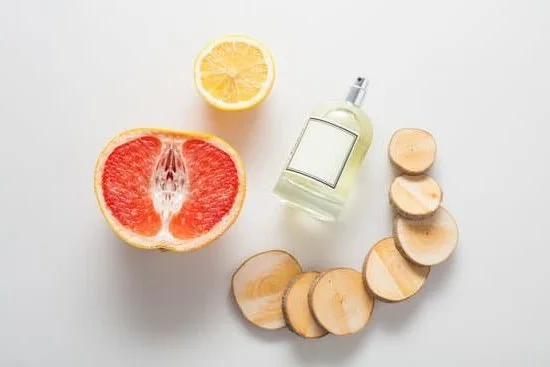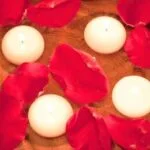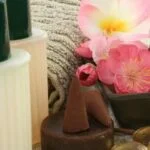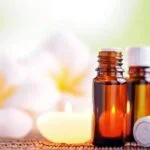Are you looking for natural ways to manage anxiety? Aromatherapy anxiety solutions may be the answer. This article explores the basics of aromatherapy and how it can help alleviate feelings of worry and stress. Understanding the science behind aromatherapy and anxiety, as well as the best essential oils for anxiety, is crucial in harnessing its potential benefits.
Aromatherapy utilizes the aromatic compounds of essential oils to promote holistic well-being, including mental health. By exploring the physiological and psychological effects of aromatherapy on anxiety, individuals can gain a deeper understanding of its potential impact on their overall wellness. The calming and stress-relieving properties of certain essential oils make them particularly effective in managing anxiety, providing a natural alternative to traditional methods.
In addition to highlighting the top essential oils known for their anxiety-relieving properties, this article will provide practical tips and techniques for incorporating aromatherapy into your daily routine to manage anxiety. From discussing different aromatherapy products such as diffusers, rollers, and balms specifically designed for anxiety relief to sharing personal success stories, this comprehensive guide aims to empower individuals in their journey towards better mental health with aromatherapy.
The Science Behind Aromatherapy and Anxiety
Aromatherapy has been recognized for its potential in alleviating anxiety and promoting relaxation. The essential oils used in aromatherapy have been found to have physiological and psychological effects that can help individuals manage feelings of anxiety and stress.
Physiological Effects
When inhaled, the aroma of essential oils can stimulate the olfactory system, which then sends signals to the limbic system in the brain. The limbic system plays a crucial role in regulating emotions, memory, and stress responses. Certain essential oils, such as lavender and chamomile, have been shown to have a calming effect on the nervous system, leading to reduced heart rate and blood pressure, as well as overall relaxation.
Psychological Effects
In addition to their physiological effects, essential oils used in aromatherapy can also have psychological effects on individuals experiencing anxiety. The scents of specific essential oils can trigger positive emotional responses and promote a sense of well-being. For example, inhaling the aroma of citrus oils like bergamot or sweet orange can uplift mood and reduce feelings of tension and worry.
Research Findings
Several studies have provided evidence for the effectiveness of aromatherapy in reducing symptoms of anxiety. Research has shown that certain essential oils can significantly decrease anxiety levels and improve overall emotional well-being when used consistently over time. These findings support the notion that aromatherapy can be a valuable tool in managing anxiety and enhancing mental health.
Best Essential Oils for Anxiety
When it comes to using aromatherapy for anxiety relief, essential oils play a crucial role in the process. These concentrated plant extracts are known for their calming and stress-relieving properties, making them a popular choice for individuals seeking natural remedies for anxiety. Here are some of the best essential oils that have been shown to be effective in alleviating anxiety:
Lavender Oil
Lavender oil is perhaps one of the most well-known essential oils for its calming effects. Research has indicated that inhaling lavender oil can help reduce anxiety levels and promote relaxation. It is also commonly used to improve sleep quality, which can be beneficial for individuals who experience anxiety-related sleep disturbances.
Chamomile Oil
Chamomile oil is another essential oil that is often used to alleviate symptoms of anxiety. Known for its gentle, soothing aroma, chamomile oil has been found to have anxiolytic effects, helping to calm nerves and ease restlessness. It is particularly useful for promoting a sense of tranquility and emotional balance.
Bergamot Oil
Bergamot oil is derived from the rind of citrus fruit and is valued for its citrusy, floral scent. This essential oil has been studied for its potential as an anxiolytic agent, with results showing that it can help reduce stress and anxiety levels. Its uplifting fragrance makes it a popular choice for promoting relaxation and reducing tension.
These essential oils can be used individually or blended together to create custom aromatherapy remedies tailored to specific anxiety symptoms and preferences. Whether through inhalation, topical application, or diluted in a bath, these essential oils offer natural support for managing anxiety symptoms.
How to Use Aromatherapy for Anxiety
Aromatherapy is a popular and effective method for managing anxiety, and incorporating it into your daily routine can have profound benefits for your mental well-being. Here are some practical tips and techniques for using aromatherapy to alleviate anxiety:
- Diffusers: Invest in a high-quality essential oil diffuser and use it in your home or workspace to disperse calming scents throughout the air. This can create a soothing atmosphere that helps to reduce feelings of anxiety.
- Topical Application: Dilute essential oils with a carrier oil such as coconut or jojoba oil, and apply them to pulse points, the bottoms of your feet, or even add them to a warm bath for relaxation.
- Inhalation: Carry a small bottle of essential oil with you and take deep breaths of the scent when you start to feel anxious. This technique can provide quick relief when you’re on the go.
It’s important to note that not all essential oils are suitable for everyone, and some individuals may be sensitive to certain scents. It’s always best to start with a small amount of an essential oil and monitor how your body responds. Additionally, if you have any underlying health conditions or are pregnant, it’s crucial to consult with a healthcare professional before using aromatherapy for anxiety relief.
Incorporating aromatherapy into your daily routine is an excellent way to manage anxiety naturally. Whether you choose to use a diffuser, apply essential oils topically, or simply inhale the scents directly from the bottle, finding what works best for you can make a significant difference in your overall well-being. By experimenting with different essential oils and application methods, you can discover which aromatherapy practices are most effective in helping alleviate feelings of anxiety.
Aromatherapy Products for Anxiety
Aromatherapy products can be a valuable tool in the management of anxiety. There are various products specifically designed to provide relief from anxiety symptoms, including diffusers, rollers, and balms infused with essential oils known for their calming properties. These products are not only convenient but also effective in promoting relaxation and reducing stress.
One of the most popular aromatherapy products for anxiety relief is the essential oil diffuser. Diffusers disperse essential oils into the air, allowing you to inhale the aroma and experience its therapeutic effects. This method is particularly beneficial for creating a calm and peaceful environment at home or in the office, providing a constant source of soothing aromas to help alleviate feelings of anxiety.
Another useful product for anxiety relief is aromatherapy rollers. These convenient roll-on applicators are pre-diluted with essential oils and can be easily applied to pulse points such as wrists and temples. Rollers offer a quick and discreet way to benefit from the calming properties of essential oils while on-the-go, making them an ideal option for managing anxiety throughout the day.
In addition to diffusers and rollers, there are also aromatherapy balms specifically formulated to target anxiety symptoms. These balms often contain a blend of soothing essential oils like lavender, chamomile, and bergamot, which can be applied directly to the skin for quick relief from stress and tension. Some balms may also incorporate additional ingredients such as shea butter or coconut oil to nourish the skin while providing aromatherapeutic benefits that help reduce feelings of anxiety.
| Aromatherapy Product | Benefits |
|---|---|
| Diffuser | Dispersion of calming essential oils into the air |
| Roller | Convenient application on pulse points for on-the-go relief |
| Balm | Soothing blend of essential oils applied directly to skin for quick symptom relief |
Personal Success Stories
Aromatherapy has been gaining attention for its potential to alleviate anxiety and promote relaxation. Many individuals have reported experiencing relief from their anxiety symptoms through the use of aromatherapy. These personal success stories serve as anecdotal evidence of the benefits of aromatherapy in managing anxiety.
One individual, who had been struggling with generalized anxiety disorder for years, found relief by incorporating lavender essential oil into their daily routine. They used a diffuser to disperse the calming aroma throughout their living space and also applied diluted lavender oil to pulse points when feeling particularly anxious. Over time, this individual noticed a decrease in the frequency and intensity of their anxiety symptoms, allowing them to regain a sense of calm and control in their life.
Another person shared how bergamot essential oil helped them manage their social anxiety. By using a rollerball infused with bergamot oil on their wrists and inhaling the scent during stressful social situations, they were able to feel more at ease and less overwhelmed by feelings of anxiety. The uplifting and citrusy aroma of bergamot contributed to a noticeable reduction in their social anxiety symptoms.
These personal success stories highlight the potential of aromatherapy in providing relief from various forms of anxiety. While these accounts are not substitutes for scientific evidence, they offer valuable insights into how individuals have incorporated aromatherapy into their self-care routines to effectively manage their anxiety.
| Success Story | Essential Oil Used |
|---|---|
| Generalized Anxiety Disorder | Lavender |
| Social Anxiety | Bergamot |
Aromatherapy and Mental Health
Aromatherapy, the use of essential oils to promote physical and psychological well-being, has gained popularity as a complementary therapy for anxiety disorders. Many individuals have turned to aromatherapy as a natural way to manage their anxiety symptoms and improve their overall mental health. While it is not a substitute for professional medical treatment, aromatherapy can be used in conjunction with other forms of therapy to support individuals dealing with anxiety.
The potential benefits of aromatherapy for anxiety disorders are backed by anecdotal evidence and some scientific research. Essential oils such as lavender, chamomile, and ylang ylang have been shown to have calming effects on the mind and body, making them particularly effective in reducing feelings of stress and anxiety. When used in aromatherapy practices such as inhaling the scents or applying diluted oils to the skin, these natural remedies can help induce relaxation and ease symptoms associated with anxiety.
It is important to note that while aromatherapy may offer benefits for managing anxiety, it is not a standalone treatment for anxiety disorders. Individuals dealing with severe or persistent symptoms should seek professional help from a mental health practitioner. However, incorporating aromatherapy into a holistic approach to mental wellness can provide additional support and contribute to overall well-being. Below are some popular essential oils known for their calming properties:
- Lavender
- Chamomile
- Ylang ylang
As research continues to explore the connection between aromatherapy and mental health, more individuals are turning to these natural remedies as part of their self-care routine. Personal stories of finding relief from anxiety through the use of essential oils are increasingly common, highlighting the potential benefits of incorporating aromatherapy into one’s mental health regimen. Understanding how different scents can positively impact emotions and thoughts is an important aspect of using aromatherapy as a complementary therapy for anxiety disorders.
- Inhaling the scent directly from the bottle or using a diffuser
- Diluting essential oils in carrier oil for topical application
- Using scented products like bath salts or candles during relaxation sessions
Aromatherapy DIY Recipes for Anxiety
In conclusion, aromatherapy has shown great promise in helping to alleviate anxiety. By understanding the basics of aromatherapy and the science behind its effects on anxiety, individuals can explore the use of essential oils to manage their stress and promote relaxation. The best essential oils for anxiety, such as lavender, chamomile, and bergamot, have been shown to have calming properties that can help ease feelings of uneasiness and tension.
Incorporating aromatherapy into daily routines can be easily achieved through various methods such as using diffusers, rollers, or balms. These products are specifically designed for anxiety relief and offer a convenient way to experience the benefits of aromatherapy on a regular basis. Furthermore, individuals can also create their own anxiety-relieving aromatherapy blends at home with simple DIY recipes using essential oils.
Overall, while aromatherapy is not a substitute for professional mental health treatment, it can be a valuable complementary therapy for those dealing with anxiety disorders. Personal success stories highlight the potential benefits of aromatherapy in managing anxiety, and further research may provide additional insights into its role in supporting mental well-being. With its soothing and calming properties, aromatherapy offers a natural and holistic approach to promoting emotional balance and overall wellness.
Frequently Asked Questions
What Aromatherapy Is Good for Anxiety?
Aromatherapy is good for anxiety because certain scents like lavender, chamomile, and bergamot have calming properties that can help reduce feelings of stress and promote relaxation. These scents can be used in diffusers, bath oils, or even as part of a massage oil.
What Is the 3 3 3 Rule for Anxiety?
The 3 3 3 rule for anxiety involves three things: look around and name three things you see, then listen and name three sounds you hear, and finally move about and touch three things while paying attention to how they feel. This technique helps ground the person in the present moment and distract them from anxious thoughts.
What Neutralizes Anxiety?
There are several methods to neutralize anxiety that don’t involve medication, such as deep breathing exercises, progressive muscle relaxation, mindfulness meditation, or engaging in physical activity like yoga or tai chi. Finding what works best may involve some trial and error but can be very effective in managing anxiety symptoms.

Are you looking for a natural way to improve your health and wellbeing?
If so, aromatherapy may be the answer for you.





